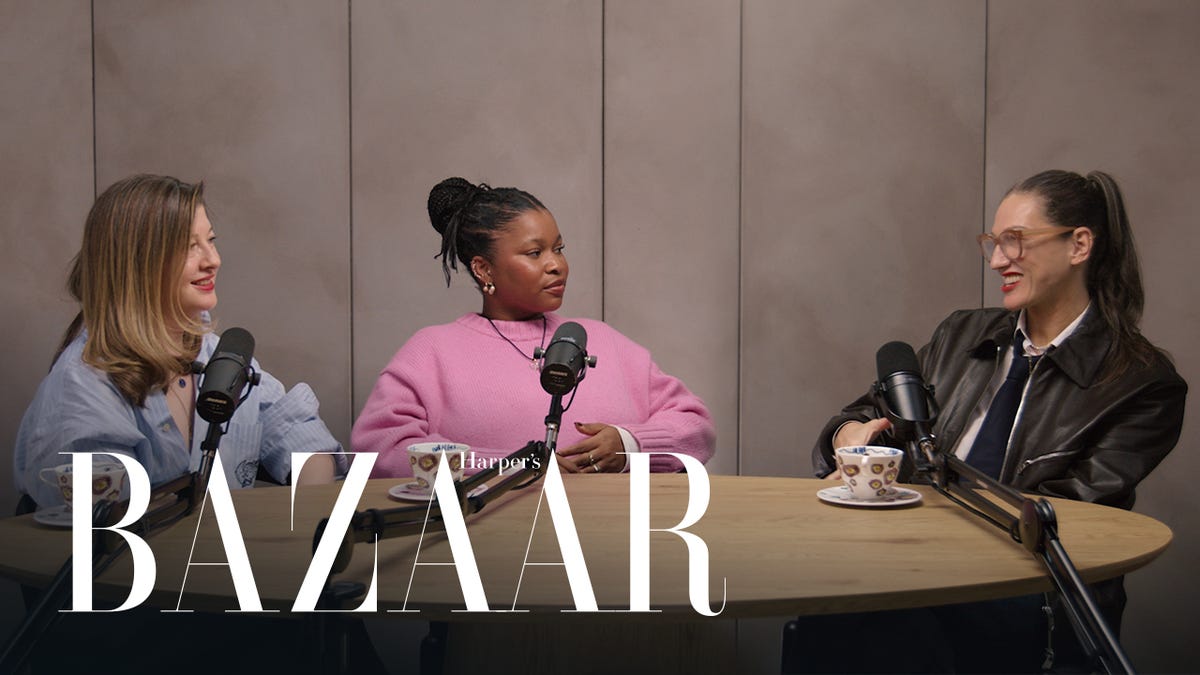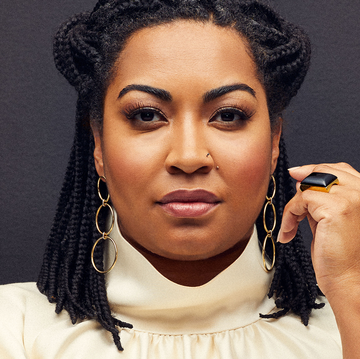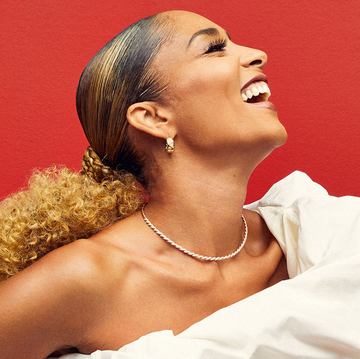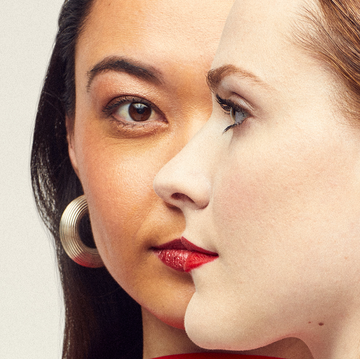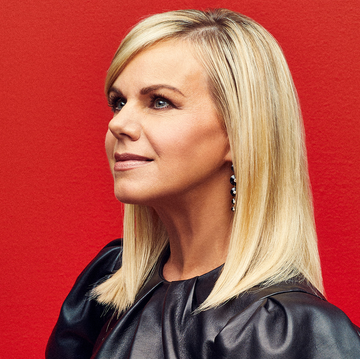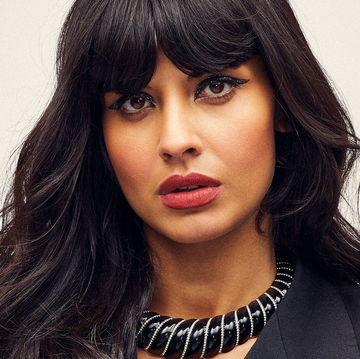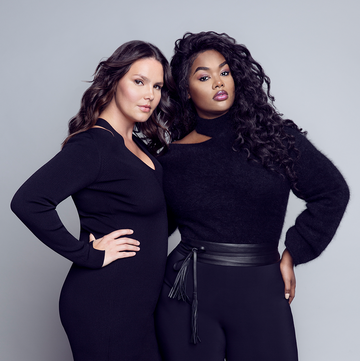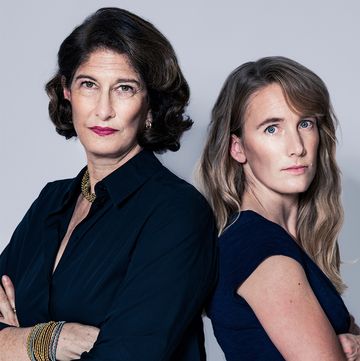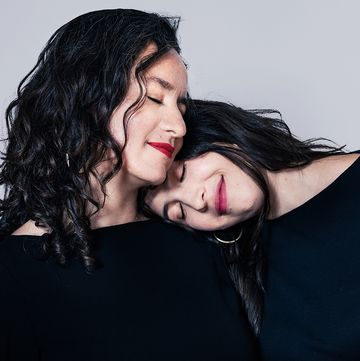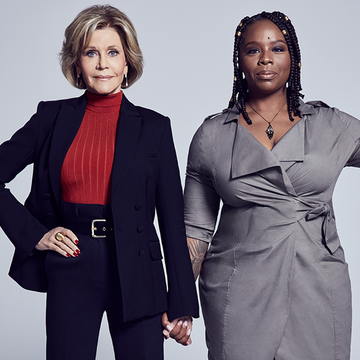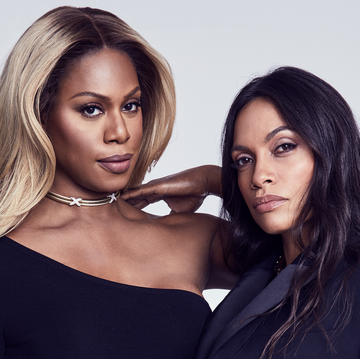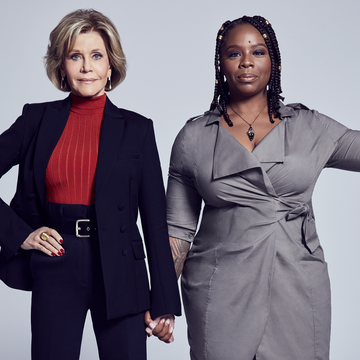For her first book, writer Emily Witt landed on a topic few are comfortable discussing outside the confines of close relationships: sex. Following several failed relationships, Witt spent five years exploring the ins and outs of dating and sex in the age of technology, from porn and live webcam chats to orgasmic meditation.That's not to say she felt wholly comfortable with the prospect: "I was really embarrassed to ask people questions and embarrassed to write about myself in an overt way," says Witt. "But the more of those conversations I had and the more writing I did, the more comfortable I became with it."
Her number one tip for becoming more daring when it comes to carnal matters? "Explore sex within your own comfort zone." Below, Witt opens up about the trials of turning one's own sex life into an anthropological study, giving orgasmic meditation a try and what it's like to witness the filming of a segment for Kink.com:
Harper's BAZAAR: Why did you set out to write Future Sex?
Emily Witt: I read a book by Gay Talese called Thy Neighbor's Wife, which was a cultural history of the sexual revolution. I really enjoyed the book. I felt a similar massive cultural shift had happened as a result of changes in technology and morals and a demographic shift towards people getting married later or not at all. I wanted to tell that story. As I started working on the book, I realized it was a very personal story for me, as well. These changes had all affected me personally.
HB: How did you select and narrow down the individual topics of the book?
EW: It was a process of traveling around, going to different things and meeting with different people. Those were the people in the end that were the most compelling to me.
HB: Having spent all this time on the topic of sex, especially in the 21st century, what surprised you the most?
EW: I guess that looking into some of these things—which I felt weren't me, didn't fit my personality or maybe weren't aligned with what I saw as good and bad kinds of sex—I learned that it was worth it to make inquiries into things and even to sometimes feel some discomfort. You wouldn't lose yourself if you considered other ways of living from the ones you thought you always wanted to live. I was surprised that pornography, for example, could make me feel better about myself and about my body and my sexuality, which countered to the lessons that I had absorbed from certain kinds of feminism.
HB: The chapter on Internet porn—particularly the scene with Kink.com—was a bit jarring to read. What was it like for you to be in that situation?
EW: That scene where there was pretty violent fantasies being played out—all in a controlled environment, but that still used words and actions that I had thought of as degrading to women—I definitely wasn't comfortable. I was worried about being there and was worried what it meant that somebody desired these fantasies and it turned them on, because to me, they were all about the rituals of humiliation of women. On the other hand, I came to understand through that experience that for the people that made it, they did find it empowering and they sought out that kind of extremity because it allows them to push their physical and mental limits in a way that they found invigorating. I had to trust them on that and then also hope that fantasy and reality are not as linked in terms of theory and practice as I've been taught.
HB: Were there any moments in your journey writing this book where you felt discouraged?
EW: Internet dating is definitely discouraging. Just for me, it never really worked out that well. I think probably a lot of readers won't relate to that because I think a lot of people have success with internet dating or have pursued it longer than I did, but I had a hard time with it and found it disappointing.
HB: Why do you think our society has such a hard time talking about sex?
EW: I don't know why. On the one hand, we live in an extremely sexualized culture where you can see sex acts by putting it in a Google search or watching a show on HBO or in advertisements. There's constant innuendos, but there's very little discussion of our sexual education about pleasure. It's all very anatomical. There's very little discussion about, even to me, the idea that you could study and inquire about how to get better at sex. And I don't mean by reading a manual or something, but testing out your fantasies and trying to name your fantasies and your response. That was not something anybody had ever taught me in an educational setting.
I think that's all changing. With the fear of something like pornography, that it sends a bad message and people are learning the wrong way to act or something from it—there's no single kind of pornography and also that only happens if people are watching porn in a vacuum. That's the only example of sexuality they're receiving because people just don't discuss sex enough or tell their own stories or talk about physical responses they've had to things that surprised them. The more people talk about it, the healthier our relationship to sex will be.
HB: At Harper's BAZAAR, November is a month where we celebrate daring women and challenge ourselves to be more daring in everyday life. Do you think women are getting more daring when it comes to conversations about sex?
EW: I definitely think they're getting more open about discussing their experiences, their bodies, things that might have been shameful about how our bodies look or react. There's a lot on the Internet about all of that. The Internet has really opened up a space for first person... possibly oversharing, but I don't think so. I think it's really nice that people are talking more openly about all this.
I think the other thing that's happening is there's a better understanding that while for some people, being more daring might be racking up partners or having one-night stands, that there is a way to explore sex within your own comfort zone, minimizing risk through masturbation, through vibrators, through things like orgasmic meditation or reading erotic literature or watching pornography or trying out a live web chat or sexting. There's so many ways to explore your sexuality now that even if you're not the kind of person who is going to go on Tinder and meet up with somebody at 1 AM at a bar, you can still be daring and push your boundaries in a way that makes you feel safe and where you feel healthy and comfortable.
HB: In the section about Internet dating, you talk about all the strings attached to sex for women in particular: "What men wanted from sex is assumed to be sex. What women wanted was not sex at all, but rather a relationship in which one had sex." How do you let go of all these strings and just enjoy yourself?
EW: It's really hard. Maybe it's possible to a certain extent, but I think the main one is naming what you like in sex. When you're going on the Internet and presenting yourself, remember that you can try presenting yourself as a sexual being and name your sexual desires. It's worth it to privately, if that's what's comfortable to you, think about what you want from a sexual relationship and learn how to describe it and name it in addition to what you want from a romantic relationship. It's worth it as you're dating to bring that up and talk about it.
HB: Have you always felt comfortable talking about sex or was that something that you had to build confidence with?
EW: I was really uncomfortable. When I first started working on the book, I was really embarrassed to ask people questions and embarrassed to write about myself in an overt way. It was really hard for me but the more of those conversations I had and the more writing I did, the more comfortable I became with it. Now it's nice because people tell me all their stories. I don't judge anymore and I don't get embarrassed. I think it's really comforting to some of my friends.
HB: With the orgasmic meditation chapter, your hesitation was there, but it seems like you slowly became more and more comfortable with the concept of trying it yourself—and then writing about it.
EW: My discomfort with that initially was not only that I didn't think of myself as the kind of person that would do that, [but] I guess I felt the organization was a little cultish and they had all this jargon. But yeah, that's why I put all of that in there, all of my discomfort and embarrassment. Maybe for some people it will be annoying but I wanted it to be clear that I didn't come into this stuff easily. It was a journey. It was a process of interrogating my own mythologies about myself and what I like and what made me happy and then trying things, going back and laying those against the stories I was telling myself again. It's a very slow, incremental process of changing and becoming more comfortable with knowing what I wanted and how to describe it.
HB: What was the most striking thing you learned about yourself when you were working on the book?
EW: The realization that I had privately experienced sexual overtures or received them with panic and anxiety. Every time I was sensing a man's interest in me, I would always freak out or want to run away from it or see it as I had to decide then and there if I wanted to marry him or something. I guess I taught myself to relax in that sense. Just being more comfortable feeling sexuality in a room, feeling it in relationships, even if it was never going to be discussed or the person was never actually hitting on me or something. Just feeling its presence and acknowledging it and naming it—what I felt desire to do.
HB: Do you have any advice for people struggling with being open about their sexuality with their partners?
EW: Most partners probably want to have this conversation. If you're feeling hung up on something or worried about something, if there's something that you don't like that you're being asked to do or there's something that you really like, I'm sure the other person you're in a relationship with is feeling that. Don't be scared about the consequences of bringing things up, because it usually will result in a happier sexual relationship.
HB: What do you think dating is going to look like five years down the road?
EW: Hopefully there's going to be more formalized rituals and etiquette and even manners around Internet dating or even around explicitly casually encounters. Just because something is casual doesn't mean that can't be intimate with a person. You can still make them breakfast. You don't have to get engaged afterwards. You can still be kind. You can still talk about your feelings. I think there's a growing awareness about that. I think initially with these apps and stuff, there was an idea like, "Oh, you just have to go in and be really business-like about it." That actually A) isn't fun, B) can hurt feelings and C) there's no reason to be that way. I think people are going to be more kinder to each other. I hope. The other thing I anticipate is more people experimenting with open relationships. You already see that in a lot of these platforms, people saying they're poly or they have a serious girlfriend, but they're looking for other kinds of experiences or people for threesomes. It seems like there's a lot more flexibility and it's not cheating, necessarily. It's honest.
HB: To me it feels like we're still in that transition period, but hopefully we'll start settling into something that feels a little bit more normal.
EW: That's what I hope, too. The more people talk about this and tell their stories and acknowledge when a bad experience is bad and what made it bad and understand that, the more comfortable and happier we'll all be.

